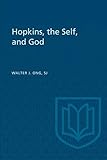Hopkins, the Self, and God / Walter Ong.
Material type: TextSeries: HeritagePublisher: Toronto : University of Toronto Press, [1993]Copyright date: ©1993Description: 1 online resource (196 p.)Content type:
TextSeries: HeritagePublisher: Toronto : University of Toronto Press, [1993]Copyright date: ©1993Description: 1 online resource (196 p.)Content type: - 9780802074133
- 9781442623439
- 821/.8
- PR4803.H44 Z7243 1993eb
- online - DeGruyter
| Item type | Current library | Call number | URL | Status | Notes | Barcode | |
|---|---|---|---|---|---|---|---|
 eBook
eBook
|
Biblioteca "Angelicum" Pont. Univ. S.Tommaso d'Aquino Nuvola online | online - DeGruyter (Browse shelf(Opens below)) | Online access | Not for loan (Accesso limitato) | Accesso per gli utenti autorizzati / Access for authorized users | (dgr)9781442623439 |
Browsing Biblioteca "Angelicum" Pont. Univ. S.Tommaso d'Aquino shelves, Shelving location: Nuvola online Close shelf browser (Hides shelf browser)

|

|

|

|

|

|

|
||
| online - DeGruyter Colonial Justice : Justice, Morality, and Crime in the Niagara District, 1791-1849 / | online - DeGruyter By Great Waters : A Newfoundland and Labrador Anthology / | online - DeGruyter Workplace Democracy : An Inquiry into Employee Participation in Canadian Work Organizations / | online - DeGruyter Hopkins, the Self, and God / | online - DeGruyter The praier and complaynte of the ploweman vnto Christe / | online - DeGruyter Allegories of Contamination : Pier Paolo Pasolini's Trilogy of Life / | online - DeGruyter Emblematic Structures in Renaissance French Culture / |
restricted access online access with authorization star
http://purl.org/coar/access_right/c_16ec
General Manley Hopkins was not alone among Victorians in his attention to the human self and to the particularities of things in the world around him, where he savoured the 'selving or 'inscape' of each individual existent. But the intensity of his interest in the self, as a focus of exuberant joy as well as sometimes of anguish, both in his poetry and his prose, marks him out as unique even among his contemporaries. In these studies Professor Ong explores some previously unexamined reasons for Hopkins' uniqueness, including unsuspected connections between nineteenth-century sensibility and certain substructures of Christian belief.Hopkins was less interested in self-discovery or self-concept than in what might be called the confrontational or obtrusive self - the 'I,' ultimately nameless, that each person wakes up to in the morning to find simply there, directly or indirectly present in every moment of consciousness. Hopkins' concern with the self grew out of a nineteenth-century sensibility which was to give birth to modernity and postmodernity, and which in his case as a Jesuit was especially nourished by the Spiritual Exercises of St Ignatius Loyola, concerned at root with the self, free choice, and free self-giving. It was also nourished by the Christian belief in the Three Persons in One God, central to Hopkins' theology courses and personal speculation, and very notable in the Special Exercises. Hopkins appropriated and intensified his Christian beliefs with new nineteenth-century awareness: he writes of the 'selving' in God of the Father, the Son, and the Holy Spirit. Hopkins' pastoral work, particularly in the confessional, dealing directly with other selves in terms of their free decisions, also gave further force to his preoccupation with the self and freedom. 'What I do,' he writes, 'is me.'Besides being concerned with the self, the most particular of particulars and the paradigm of all sense of 'presence,' the Spiritual Exercises in many ways attend to other particularities with an insistence that has drawn lengthy and rather impassioned commentary from the postmodern literary theorist Roland Barthes.Hopkins' distinctive and often precocious attention to the self and freedom puts him theologically far ahead of many of his fellow Catholics and other fellow Victorians, and gives him his permanent relevance to the modern and postmodern world.
Mode of access: Internet via World Wide Web.
In English.
Description based on online resource; title from PDF title page (publisher's Web site, viewed 01. Nov 2023)


